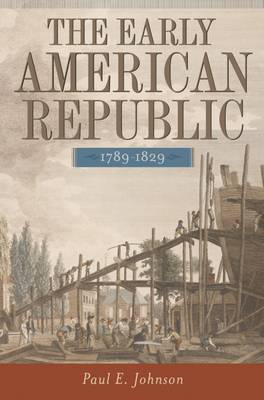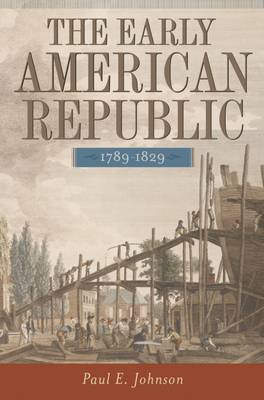
- Afhalen na 1 uur in een winkel met voorraad
- Gratis thuislevering in België vanaf € 30
- Ruim aanbod met 7 miljoen producten
- Afhalen na 1 uur in een winkel met voorraad
- Gratis thuislevering in België vanaf € 30
- Ruim aanbod met 7 miljoen producten
Zoeken
Omschrijving
Synthesizing political, social, and cultural aspects of early U.S. history, The Early American Republic, 1789-1829 provides a unique and integrated overview of the era. Focusing on the politics and process of nation-making and the birth of American market society, the book addresses two main subjects. First, it recounts the history of national politics from the presidency of George Washington through the inauguration of Andrew Jackson. During that period, the Founders struggled to make a national republic, then watched as their United States became bigger, more democratic, and more divided than anything they had envisioned. Second, the book describes the beginnings of American market society, demonstrating how many Americans began to organize their lives around earning, buying, and selling. The Early American Republic, 1789-1829 illustrates the formative years of American nationhood, democracy, and free-market capitalism. While most people consider these to be inevitably American, the book demonstrates that none were natural, inevitable, or undisputed in 1789.
Examining all aspects of the Early Republic, the book explores such topics as family life, religion, the construction and reconstruction of gender systems, the rise of popular print and other forms of communication, and evolving attitudes toward slavery and race. It also covers the social history of market society, territorial expansion, and the growth of slavery, offering detailed region-, race-, and class-specific considerations of family life and religion. Providing a brief, comprehensive, and clearly written synthesis of American political, economic, social, and cultural development, The Early American Republic, 1789-1829 is ideal for courses in the early national period.
Examining all aspects of the Early Republic, the book explores such topics as family life, religion, the construction and reconstruction of gender systems, the rise of popular print and other forms of communication, and evolving attitudes toward slavery and race. It also covers the social history of market society, territorial expansion, and the growth of slavery, offering detailed region-, race-, and class-specific considerations of family life and religion. Providing a brief, comprehensive, and clearly written synthesis of American political, economic, social, and cultural development, The Early American Republic, 1789-1829 is ideal for courses in the early national period.
Specificaties
Betrokkenen
- Auteur(s):
- Uitgeverij:
Inhoud
- Aantal bladzijden:
- 208
- Taal:
- Engels
Eigenschappen
- Productcode (EAN):
- 9780195154238
- Verschijningsdatum:
- 2/03/2006
- Uitvoering:
- Paperback
- Formaat:
- Trade paperback (VS)
- Afmetingen:
- 155 mm x 231 mm
- Gewicht:
- 317 g

Alleen bij Standaard Boekhandel
+ 76 punten op je klantenkaart van Standaard Boekhandel
Beoordelingen
We publiceren alleen reviews die voldoen aan de voorwaarden voor reviews. Bekijk onze voorwaarden voor reviews.











